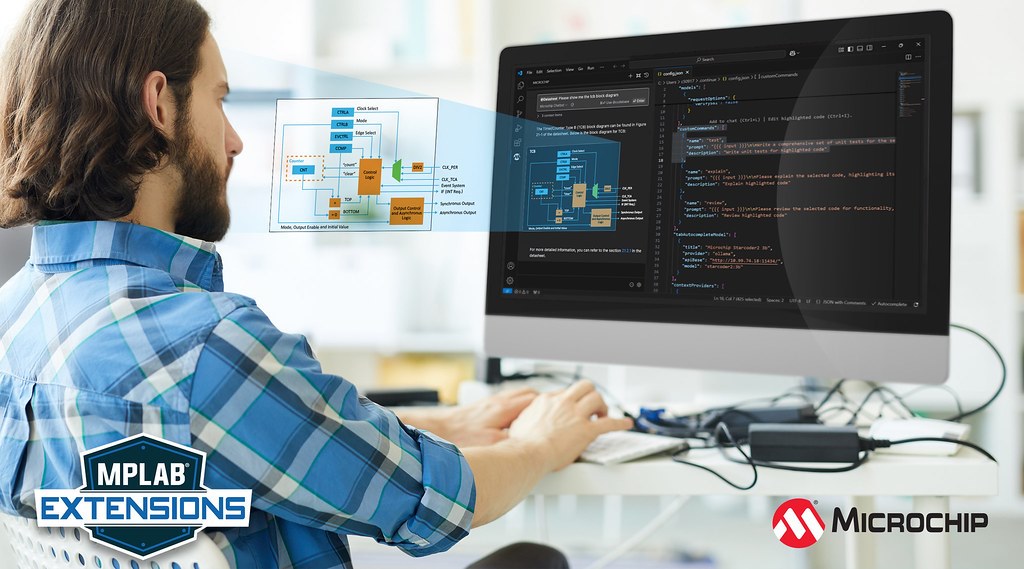
Microchip's MPLab AI-Assistant code bot makes coding more efficient for developers. (Image Credit: Microchip)
In February, Microchip introduced the MPLab AI Assistant Code Bot, an innovation that allows human developers to work with AI assistance for rapid software development. By using MPLab AI Assistant, developers describe what they want their program to do, and AI generates and refines the code. Rather than manually writing every line of code, developers use the AI-powered workflow, enabling faster, more creative, and more intuitive coding.
During the webinar, attendees were introduced to MPLab AI Assistant and its capabilities. The presenter demonstrated and explained how it can be used for different tasks, including writing code to initialize the ADC (Analog-to-Digital Converter) using interrupts and outputting its value to the serial port every second. This enables developers to rapidly generate code for hardware interactions. In addition, it showed the ordering code, among other information, from any connected device. When promoted, the tool also displayed the ADC block diagram.
MPLab AI Assistant accesses details from existing projects, demonstrating how it can produce new applications and modify or extend existing code. With those examples, the presenter explained strategies, including effective prompt structuring, reviewing AI-generated outputs, and quick iterations for better results.
Besides that, the AI tool can significantly speed up prototyping, reducing the time it takes to turn a concept into a working demo. People with limited coding experience benefit from this as they can significantly contribute to software projects. Experienced coders, meanwhile, won't be tied up with repetitive coding tasks, allowing them to focus on architecture, creativity, and problem-solving. Teams can even use it for improved experimentation and scaling efficiency without sacrificing quality.
For example, a small team working on a smart home dashboard may find MPLab AI Assistant more efficient. Rather than writing code from scratch, they describe the requirements, including lighting controls, temperature monitoring, and door alerts. The AI tool then generates the code, and developers test and adjust as needed. Afterward, the team has a functional prototype within hours.
MPLab AI Assistant is highly adaptable across various industries. For instance, in embedded systems, it accelerates the development of monitoring tools or control applications that take weeks to assemble. For enterprise software, the tool may accelerate iteration on the user interface or custom workflows. In terms of education, newcomers can utilize it to bring their concepts to life without learning about traditional coding, leading to a more approachable and less intimidating programming experience.
While the webinar introduced these possibilities, it suggested that this is the beginning. We've seen AI-assisted development evolve, and MPLab AI Assistant is expected to feature more capabilities as tools become smarter and are tightly incorporated into current ecosystems. Experimenting developers will become more efficient while thinking about software design differently, in which creativity, intent, and problem-solving are more important than syntax.
Have a story tip? Message me here at element14.
